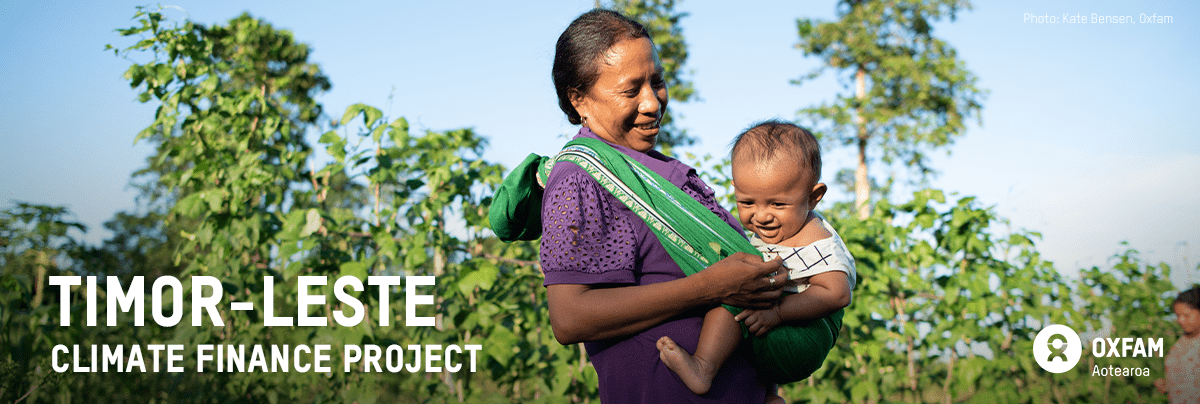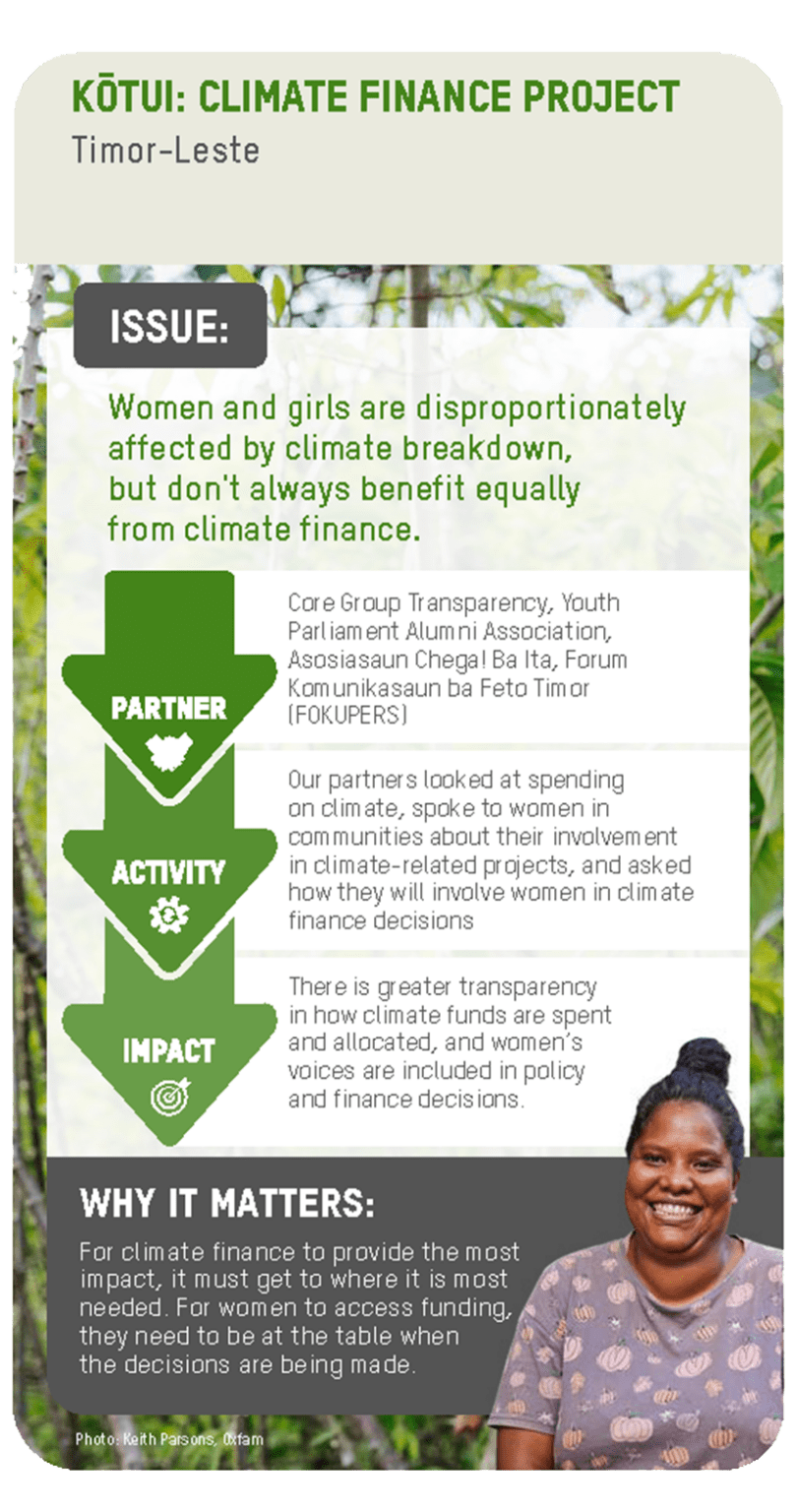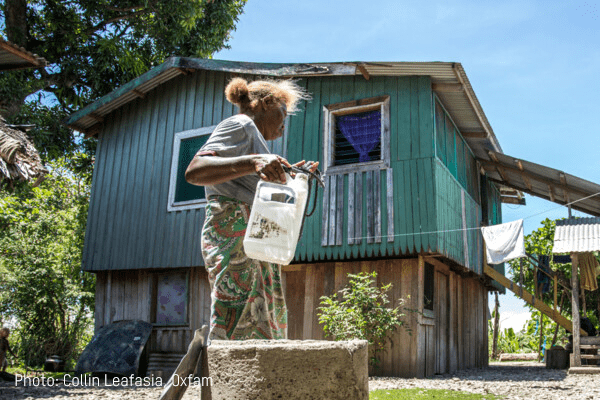
Timor-Leste is highly vulnerable to climate-related disasters and is considered the seventh most disaster-prone country in the world. Women and girls are disproportionately affected by the negative consequences of drought, landslides, and floods. Gender-based violence is prevalent across Timor-Leste and research shows that climate emergencies can lead to further increases in domestic violence.
Climate finance
‘Climate finance’ is the term used for funds that support people to stop climate destruction or adapt to its impacts. Effective climate finance is funding that all people can use and benefit from, especially people who experience discrimination and poverty. Oxfam’s work seeks to ensure that climate finance decision-makers factor in the needs of women, that there is greater transparency in how climate funds are spent and allocated, and that women’s voices are included in policy and finance decisions.

KŌTUI
Timor-Leste Climate Finance Project is part of our larger five-year, multi-country programme, Kōtui. Read more about Kōtui here!
This te reo Māori word means binding together, or interlacing, during weaving. The woven mat represents dialogue and joint problem-solving in Pacific countries and in Timor-Leste. It is an appropriate symbol for a programme focused on inclusive and equitable governance.

Climate finance in Timor-Leste
For climate finance to provide the best possible return and the most impact, it must get to where it is most needed. Timor-Leste is accessing significant amounts of climate finance, yet women and other vulnerable groups in Timor-Leste have not yet been able to adequately, equitably and optimally access or benefit from climate finance. One key way to help these groups access this much-needed funding is to help ensure that they are included in the climate finance forums that direct this funding. To put it simply, for women to get more access to this funding, they need to be at the table when the decisions are being made.
Climate adaptation policy
The first long-term outcome of this project is that climate adaptation policy and implementation will increasingly include women’s rights and roles. To address the disproportionate impact of climate breakdown on vulnerable and marginalised communities, our local partner Core Group Transparency (CGT) will: use research to build its own understanding of the needs of women and other marginalised groups in relation to climate change adaptation, advocate for women to be included in climate finance forums, and support women to participate through networking, preparatory analysis, and discussion.
Focus on partners:
Core Group Transparency (CGT) is a civil society network made up of 13 local organisations (including a women’s organisation and a Disabled Persons’ Organisation), established in 2005 to oversee transparency and accountability of the state budget in Timor-Leste. CGT sees itself as a bridge between rural communities, leaders and other entities who are responsible for transparency, a function it fulfils mainly through research, monitoring, evaluation, community discussions, and sharing information through the media.

CLIMATE FINANCE TRACKING
The second long-term outcome of this project is that more climate finance will be allocated to initiatives that support women’s resilience.
There is currently little information available on climate finance in Timor-Leste. More comprehensive information, greater transparency and availability of information will lift accountability to citizens, offer opportunities for more effective and efficient use of scarce funds, and enable analysis on the extent to which climate finance is meeting the needs of women and other groups facing marginalisation. Kōtui will support the development of a climate finance tracking tool for the Timor-Leste context so that CGT can track climate finance from the international level to Timor-Leste, and from the national level to communities.
By the end of the five-year Kōtui programme…
We expect to see the following improved governance outcomes:
Greater transparency on climate finance decision processes, allocations and impact
Climate adaptation policies and programmes increasingly consider the rights and roles of women and other groups facing marginalisation
More climate finance is allocated to addressing the needs of women and other groups facing marginalisation
Climate finance decision-makers at national level increasingly include evidence on impacts and needs of women and other groups facing marginalisation
Climate finance decision-makers at national level value and invite analysis and advice from Civil Society Organisations
Climate finance decision-makers increasingly include women and other groups facing marginalisation in consultations at national, municipal and community levels





